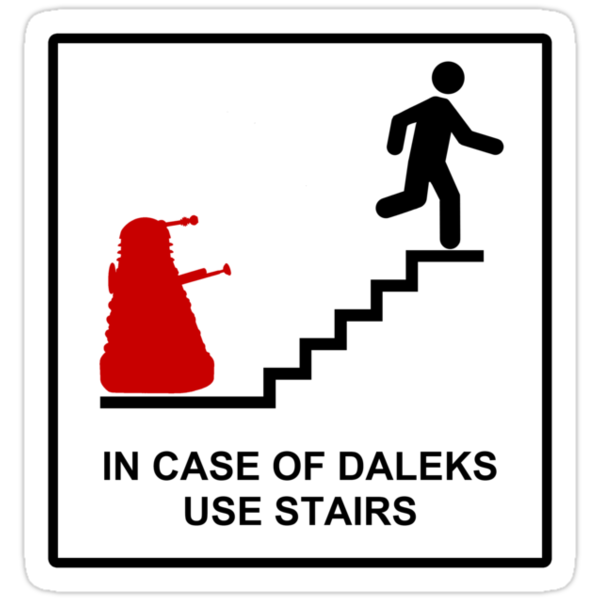This post is for my good friends, ‘Ellie’, ‘Graham’ and ‘Ben’, and, of course, for Jo.
Lately I’ve been struggling a lot with the fact that my physical health isn’t where I want it to be, which gives my mental health a bit of a battering too. Physically, my head isn’t right, I have no energy, I can barely breathe, I’m constantly in a lot of pain, I feel sick and dizzy all the time, I can’t make my hands or arms or legs do I what I want them to do, and generally I just feel that I’m being sucked under - unable to work, unable to focus, unable to get around, and so on. The sense of despondency is pretty familiar to me, as is the associated self-hatred which (with diagnoses of bipolar disorder and BPD) are never far from the surface.
By chance, I recently found a whole load of notes from when I was an inpatient at the Priory for the first time, back when I was 17 (I don’t have the strength to go through all my notes from other admissions too just now!). My eating had just ground to a halt as a result of depression, and I didn’t have any particular desire to get it going again. I was dangerously underweight and my heart rate and blood pressure were so low and my muscles so weak that I wasn’t allowed to move about more than walking, with support, to a different room for blood tests and ECGs. I wasn’t allowed to go up stairs for weeks.
 |
| In the event of Dalek attack, I would have been exterminated. |
A week into my stay, I recorded in my diary that I wouldn’t be allowed to be more active until my pulse was reliably above 40 bpm (40 bpm is not disastrously low for a professional athlete, although it is at the very limits, and I was not an athlete but just a very sick teenager). Tucked inside my diary were various notes, letters and pieces of medical information from my stay there, such as the weekly inpatient therapy programmes. For me, these programmes tell only half the story, if that - most of what I did was eat, sleep, have blood tests, have ECGs, then eat and sleep some more. I was woken up every four hours for blood tests and to check my body temperature, heart rate, and blood pressure. Every 15 minutes a shorter check was made on me to ensure that I was still breathing. For some of the time, I was on 24 hour obs, meaning that I wasn’t even deemed sufficiently fit to cope with going to the bathroom on my own. Coming off 24 hour obs was very exciting, but I never came off ‘red alert’, meaning that every 15 minutes I had people checking up on me. Although they generally managed to resist the urge to stick needles in me every 15 minutes, the blood tests every four hours meant that I didn’t sleep well!

Some of the things that I recorded in my diary I now find harrowing, even though they are usually recorded with an air of flippancy. For example (all names have been changed):
“Monday. Feeling sick, dizzy, groggy. New patients galore! James - alcoholic and drugs, and Joe - RAF alcoholic [we later found out he was also in for a sex addiction. As a minor, under the age of 18, I was the last to find out!]. Scary moment with James earlier when he was shaking and stuff, so Ben [a fellow patient] did my supervision [looking after me after a meal to ensure that the effort of eating did not send me rapidly downhill]….Tonight is the first night I just really want to go home - feel so ill and fed up of this place. Would quite like to see a Chaplain cos it’d be someone not a patient or Dr etc. Other stuff - blood tests, had to try both arms cos vein collapsed in right one which HURT. Some of the ado[lescent]s tried to abscond, v. exciting! Jenny had to press the panic [i.e. self-harm] alarm last night, really thumping at it, which was a shame, cos it was her birthday. I’m worried I might get into smoking…earlier I was passive smoking and it really did relax me… Went to the ‘Coping with loss’ session, which was interesting for me. Threw up lots of stuff. I am messed up. Kate came off 24 hour obs today which is really good news for her. Had a blood test with ‘the butcher’ - not too bad, but he was so slow! Have a haircut tomorrow in town. Scared of going out now though. Feeling v. anti-Priory right now. Just anti-lack of control I think. They’ve taken all control away and they don’t trust us at all. I hate it…Had a chat with Tom about ECT. Sounds scary. He has to leave early and will be back about midday, when he won’t remember any of us. I wonder if he’ll remember the building? Although it’s all change with the building work going on. He also told us about hitting Tom (our new doctor) in the balls when he ‘passed out’, by mistake apparently…Today Sam talked about Iraq a bit. Can’t remember where he said he started but he went to Chemical Ali’s Palace and to Basra Airport where he saw a suicide bomber blow himself up. Had a chat with him later, just about my afternoon, but feel closer now. The groups do open things up. Ben and Linda were there too, we talked about suicide bomb attacks in London and stuff. Saw Tom coming back from ECT, looked a bit woozy. Not surprising, I suppose. Hope he’ll be OK. He came and played cards but we both went to bed early, he looked knackered. ECT was hard for him but he seems to remember us OK. His daughter seemed to have a nice birthday too (5 today).”
I had forgotten that people coming in with severe addictions could suddenly be found in a corridor, rocking back and forth and crying inconsolably. I had forgotten that the tedium of the place and the sense of desperation (that you’d never be discharged) could be overwhelming. I’d forgotten that the constant medical tests, and especially blood tests, left my thin, pale arms battered and bruised. I’d forgotten that my feelings about the hospital could flip over in an instant - from overwhelming affection for all those there with me, to utter hatred towards my predicament. I'd forgotten how frightening some other patients' past experiences had been, and how the reverse of something humerous was usually something grim.

Other things I noted down I have decided not to type here, even with false names, because they were followed by, ‘Then he said that he’d not told anyone that before cos he wasn’t proud of it, and it was a big trust thing.’ What is interesting is that, to my mind, most of these things that people were ashamed of are, like me, things that we shouldn’t have been ashamed of. They were things that happen to people - sometimes only to sick people; sometimes to all people. But whatever they were, although we needn’t be ‘proud’, we needn’t be ashamed either. That said, these aren’t my ‘confessions’ (I prefer ‘stories’), hence the silence on them.
There were better times too:
“I’ve been much better today about getting out on the ward and talking to people, and already I find myself really caring about them. Went to a group therapy thing. Relief to know I’m not the only one feeling the way I do. Quite hard though. Afterwards we fed the ducklings which was nice. Went to art room with the others and made some stuff. When M and D came I was quite happy cos had just seen the Dr and that had gone well, so that made them happy too…Just popped onto the ward for a quick chat. I feel such affection for all these guys… Had tea, a pear and a liquorice bar for my snack. Ben and I sat outside and chatted. Went to teach Graham a bit of piano before tea. He got through half the book in 20 minutes! They made me play John Williams stuff after that (Indiana Jones, Star Wars, etc!). V shaky unfortunately. Gary appeared too and wanted to learn the piano. I got Graham to show him the basics then took over. He was good but not as good as Graham! …Today on the ward we were chatting and I lent Nigel my dad’s phone so he could look for a personal training course - he thought he’d like to do that. Then we persuaded Graham to go for a run (SO jealous), now just need to work on Laura! Tomorrow I need to write a list of all the people I’ve met so I don’t forget them…Sat outside today for supervision with nurse Lynne. She told me about her life growing up in Kenya - lots of interesting stories! …So glad Ellie [friend from school] is here, even if that sounds bad for her. She helps me a lot, and we have fun, if that’s possible. Earlier tonight the fire alarm went off and a whole bunch of firemen rocked up. We had to evacuate, so Ellie and I sat outside in our PJs and tried to come up with ridiculous things to say to make the firemen nervous about being in a psych hospital. Little things…”

Sometimes I recorded things which make me chuckle reading them now:
“Lunch OK, had it with Harry [a nurse]. They only brought half a peach and they didn’t bring my drinks, so I was happy! Looks like I’m staying on another week, just have my fingers crossed for a home visit this weekend. May have to start making myself agitated before having BP checked! Also having extra bloods down with BP, won’t be nice at 2.30am, with any luck they’ll forget…!…Art class was hilarious, we made so many plaster of paris things. Joe is annoying me though, he won’t admit anything’s wrong with him and is so blasé, self-righteous and conceited about everything! Finally met Andy [the one famous person in with us!] but didn’t realise who he was so didn’t get his autograph, oops…Big wigs of the hospital came round today to see how everything was. Steve said he wasn’t ‘getting dressed up for those pricks’!…We were playing cards and suddenly Joe came out with, ‘Oh, pillock!’ to himself; Gary asked if he was coming out with Tourettes now. At 6am Kate made sure I was awake so I could feed the ducklings when they came round to visit; Giles came too…We tried to play Jenga. This is hard to play when everybody’s hands are shaking from meds. We played about 20 very short games before giving up and going back to rummy! Had a visitor in the form of Liz. Went round to try and find her (she hadn’t been to the hospital before) and suddenly a whole load of nurses came running after me - they thought I was trying to abscond! We played Jenga again afterwards and actually did ok, managing 37 layers before I ruined it!”
I learnt a lot, often about myself and others at the same time:
“Carol absconded last night, Joe ran after her! Have been more patient with him today. Don’t really understand but I think his problems are more complicated than I thought.”
At times I had the air of a shipwrecked mariner, feeling that my lot was hard without the knowledge I now have that it would take many years for things to improve:
“One week and still here.”
“Meal Plan 2 cometh on Mon.”
(Meal Plan 2 was actually number 4, after A, B and 1)
My diary also records visits and texts from friends, for which I am really grateful now as I was then. My parents came every night, often with a brother or two in tow, which could have its disadvantages:
“When family came we went for a walk and fed the teeny ducklings then went back to my room, where I got fed up of them sitting in my room farting and reading my paper so we went back out and played cards for a bit.”
One of the scariest things is how quickly things went from being OK to being unbearable:
“Good session but came back and CRIED and just kept hurting myself. Felt scarily good. Wanted to go home. Couldn’t believe where I’d ended up. Ella [nurse] came and sorted me out in the end.
Adapting to life in a psychiatric hospital wasn’t all bad. Mostly we had good healthcare professionals. On one occasion, I was feeling ill at night time and didn’t feel I could stay awake until the time I was meant to have all my ‘vitals’ observed.
“I had the late evening one done at 9.30pm (Kate very excited on seeing me and getting to use the bp machine for some reason) and then we negotiated 1.30am and 6am instead of 1am and 5am. SLEEP :)”
Home visits, even if brief, were exciting.
“HOME! Had to have a risk assessment (only amber, woo) and a chat with various people, BP etc checked, pulse had to be >40. Fed ducklings. We went to choose some good food from the supermarket, which was quite hard, quite apart from the fact that it was weird being out. Went for hair cut. She asked what I had planned for the weekend, I said I was going back to hospital tomorrow! Chatted with M a bit about how I felt last week, and some other stuff. Still more to talk about though, much more. Anyway! Fairly good day, pm not too bad, headache came but painkillers actually worked for once.”
Finally, going home was permanent (well, at least until the next admission):
“Woah. Am now at home. Felt a bit sick this morning. Had meds before breakfast then went down with Sarah [nurse]. Got halfway through before having to stop - felt really sick, dizzy and shaky. We went outside for about half an hour - talked about her sister’s death, and she cried, which was weird but good for both of us I think. Verdict on me was low blood sugar so need to have glucose tablets when I first get up from now on. Went to listen to Graham play piano during supervision; he can play with two hands now! M came and we went to get some bits in town before coming back for my final discharge bits and bobs. Bought some beginners’ piano music to leave in the hospital. When we got back Graham played Camptown races and ‘Lizzie’s Polka’ - complete with chords! Came home and SLEPT. Head hurts quite a bit. Getting ready for bed, chatted with M about how she did the one thing that could have helped me in taking me to see someone [i.e. a doctor]. Overall am glad to be home.”
Reading through all this old stuff has been quite eye-opening. Although my physical health was terrible then, my mental health is a lot better, and I’ve undoubtedly come a long way since then. In a big way, I’m more in control of my physical health now. These days, most of my problems physically are now linked to EDS and all its related disorders (rather than to depression, which some would argue is within my control - if you would argue this then please bugger off and learn something about it!). Although I can’t control my EDS, I can do my best to control my attitudes towards it, my lifestyle, and the ways in which I adapt my life to suit disability. So far, I think I’ve done that pretty successfully. I do still struggle and find it hard, but that is surely to be expected. I think I have much better control of my health now (admittedly with the assistance of LOTS of drugs) than I did back then, and my quality of life is undeniably better. My medication has helped me to weather some very nasty stuff that life has thrown at me, and although I’m struggling now I also know that it has been very, very much worse in the past.
But…it’s still not enough, and this is the bit I haven’t figured out. I still don’t know if I’m going to be able to complete a PhD without sacrificing everything else in life that I enjoy. At the moment, I simply can’t do both. I need to find a way of working that allows me to work efficiently whilst conserving enough energy to have a real life alongside. Perhaps this means giving some stuff up, and it’s certainly something I shall have to think about very hard in the near future. I may also need to re-assess how I do my work, and I’m glad that there are options for part-time study available to me, and that my supervisors are very supportive. At the moment I have no desire at all to study; to write; to travel to conferences and present my work.
This time last year I was loving it, but I’ve struggled so much recently that it all just seems like such an unnecessary burden. I’m close to giving up on it. The only thing keeping me going is that if I’m going to be disabled (and I don’t really have a choice!) then I want to be bloody awkward and determined, fighting all the way. I want to do sport AND engage in the arts AND study for a PhD. At the moment, it feels as if anything I have achieved is something achieved despite my disability. I’d like to turn that around - I want to achieve things because of EDS. I can achieve things in para-sport that I would never have achieved without EDS, but I also want to achieve something that able-bodied people can achieve, namely the PhD. EDS could stop me achieving it, but it could also help me achieve it by giving me the obstinance to keep hammering my head against the wall until I’ve managed it. It won’t be easy, and it will be far harder than if I were healthy, but it damned well shouldn’t be impossible. In many ways, being disabled makes people stronger than they would be otherwise, and I hope the same will prove to be true in this case. The difficulty is in reminding myself that disability is not an excuse not to complete a task but rather a reason for completing it. It’s slightly warped logic and it might not work for everyone, but how else am I going to manage?
'The Crashing of the Waves' - written for me by ‘Graham', my protégé pianist.
Can you hear the approaching storm?
The distant sounds, it’s just the norm.
Those same old noises come creeping in,
The crashing of the waves.
I’ve been here many times before,
It may be less, it may be more,
But my defences are sturdy,
My defences are sure,
32 years of wear or tear,
I had to make hundreds of repairs,
They’ve never been breached,
I’ve never been reached,
The crashing of the waves.
This storm different, much more intense,
It quick twists and turns my defences,
It rips them up, too easy to dispense with,
I’m exposed by the crashing of the waves.
Guess time has finally taken its toll,
And left me with a massive black hole,
Nothing left to fill the gap,
I’ve no escape route planned on my map;
I’m trapped by the crashing of the waves.
In they come in one great flood,
They are the colour of thick red blood,
I try to run, it’s just too late,
There’s far too much piled on my plate,
I’m swallowed by the crashing of the waves.
Now it’s time to sink or swim,
When did they really set in?
I feel so tired, I feel so thin,
It’s all too much for me to take in,
I’m drowning in the crashing of the waves.
When did the noises first really begin?
Could they really be coming from within?
Will I ever escape this dreadful din?
How did they manage to get under my skin?
I’m tormented by the crashing of the waves.
There’s nowhere left for me to hide,
‘though stupidly, I’ve still tried.
All my life I’ve told myself lies,
I’ve been living within denial,
I’m tricked by the crashing of the waves.
How will this sad story end?
With me going totally round the bend?
I’ve been stripped naked, I’ve been laid bare,
If I go will anybody really care?
I’m filled with terror and disappear,
Why is life just so unfair?
And still the crashing of the waves…
…Depression.



















